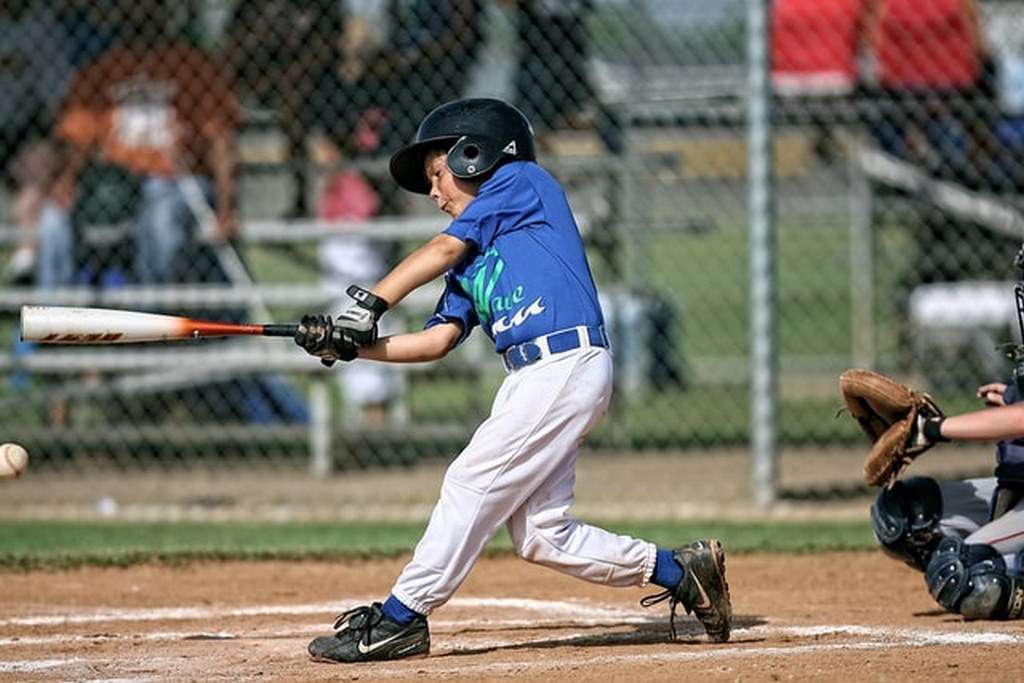Mechanic Smashes World Record for Most Push-ups in an Hour - A Whopping 3,183 - All While in Pain
Australian mechanic Daniel Scali has smashed the world record for most push-ups in an hour-completing a staggering 3,182.

Playing sports at school makes people "grittier" and harder working, boosts the chances of achieving long-term goals, and having successful careers, say scientists.
Oftentimes old fashioned notions about people arose from a collected experiential wisdom, and in this case, Teddy Roosevelt's notion that sports hardens a young man seems correct.
A study looked at adults who took part in organized sports as children—such as football, baseball and basketball, and measured them for "grit."
The trait was defined as a combination of passion, perseverance, courage, endurance, resilience, and conscientiousness.
How does one measure grit without Navy Seal training?
The Ohio State University team analyzed National Sports and Society Survey data on almost 4,000 men and women across the US and asked study participants to rate themselves on a scale of 1-5 on eight statements.
They included "I am diligent. I never give up" and "I am a hard worker." None of the statements was directly related to sports.
34% of those who did sports as a youngster scored high on the grit scale, compared to 23% of peers who opted out or gave up. One in four of those who never played sports ranked low, compared to just 17% of those who did.
Lead author Dr. Emily Nothnagle said practicing drills on the field can improve pupils' lives for decades, adding "the grit they develop playing sports can help them the rest of their lives."
Those who participated in sports during the past year showed more grit than those who didn't, said co-author Professor Chris Knoester.
"Adults who played youth sports but dropped out did not show higher levels of grit," Prof. Knoester "They actually demonstrated lower levels of grit after we included a proxy measure of how sports mattered for the development of grit while growing up."
The findings, published in the journal Leisure Sciences, were supported by more sophisticated statistical analyses that accounted for respondents' demographic characteristics.
But it appears only children who keep at it—and play continually—get the benefit, say the researchers. Some may just be born with the grit to help them succeed at sports as a young person and then continue to benefit from that trait as an adult.
"Quitting could reflect a lack of perseverance, which is a crucial component of grit," said Knoester. "It could also make quitting an activity, and not persevering, easier the next time."
Adults who played sports as kids generally perceived the experience helped improve their work ethic, and that perception was linked to their grit scores as adults even though the researchers said people can gain or lose grit throughout life.
For instance adults who said they participated in sports regularly within the last year exhibited higher levels of grit.
"This additional finding about sports participation in adulthood suggests that you can build and perhaps lose grit during different points in your life," said Knoester. "It is not a static quality."
Prof. Knoester added that sports offer a valuable place in society where one can work hard and practice and take it really seriously, but wherein it's also not real life to some extent.
"Typically, sports are thought of as a separate sphere of life and the stakes in sports are not as far-reaching and extreme," he said. "But you can take those lessons you learn and practice in sports, such as building grit, and apply them in your life outside of sports in very useful ways."
Be the first to comment